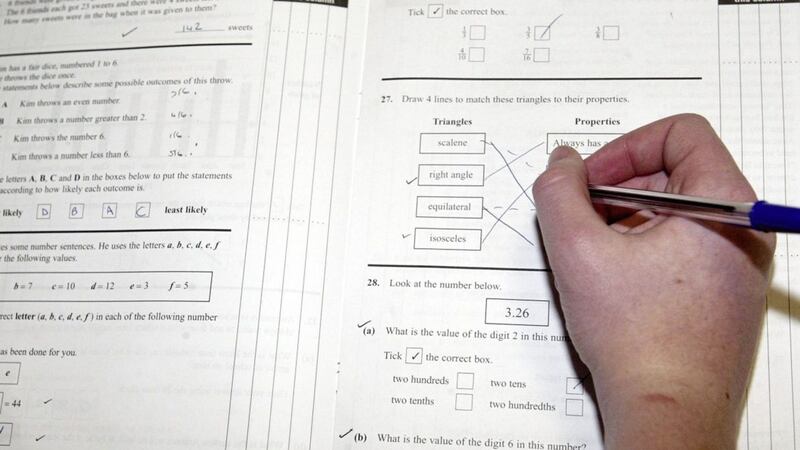GRAMMAR schools that suspended 11-plus style exams this year could potentially be forced to reverse their decisions.
A dozen schools, most of them Catholic grammars, cancelled entrance assessments due to take place this winter.
It has now emerged they may be required to go through an onerous `development proposal' (DP) process before any change can be made.
Without the green light from the minister, schools would be acting unlawfully if they chose not to run exams.
The DP process typically runs for several months and involves a public consultation before a proposal is approved or rejected.
Unregulated grammar school tests are due to run on four consecutive weekends in January.
Any late u-turn would likely cause a furious reaction from parents and schools.
Several schools announced in May and June that they would suspend academic selection for one year due to the Covid crisis. They will instead use non-academic admissions criteria.
However, the Department of Education is now considering whether DPs are needed.
Any change to a school that is considered "significant" requires such a proposal by law.
A small number of grammars that have permanently ended academic selection were all made complete the process.
The issue was raised at the assembly education committee yesterday by Ulster Unionist member Robbie Butler.
He asked if schools required such a proposal to opt-out temporarily.
Department official Janis Scallon told the committee that letters had been sent to the grammars concerned, as well as 46 neighbouring post-primary schools and 203 feeder primaries as part of a "fact finding exercise to ask for information on what impact those changes would have on their respective schools".
Only seven grammar schools, two neighbouring post-primaries and four feeder schools replied.
"We are currently in the process of analysing the information," Ms Scallon said.
"We will make a recommendation to the minister as to whether the changes are considered significant and if they are likely to have a significant effect requiring those schools to submit a development proposal."
Committee chairman Chris Lyttle of the Alliance Party asked why DPs were needed if admissions criteria were the sole responsibility of boards of governors.
Ms Scallon said legislation made the position clear.
"The development proposal legislation stipulates that any significant change, be that in the size of the school, the management type of the school, the characteristics of the school - any significant change requires a development proposal," she said.
"We need to explore what the impact may be, not just on that school but, as the legislation sets out, significant impact on other schools. We have had to do this fact finding to gather the evidence to let the department decide whether this will be a significant change.
"If it is deemed a significant change then, as per the legislation, a development proposal would be required."
Mr Lyttle asked the officials if the minister was going to "potentially utilise development proposal legislation to interfere in the setting of admissions criteria of some post-primary schools".
He also questioned why the department was only investigating the issue now when schools announced their intended changes in the summer.







